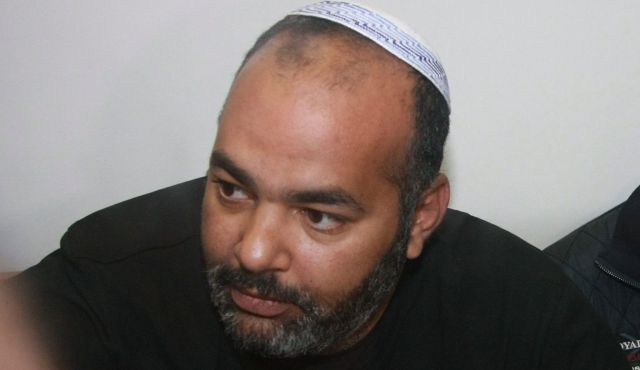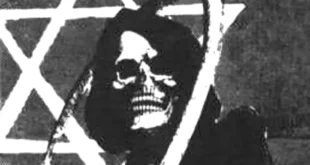Guardian
November 22, 2013

Simon was standing in his shop in sight of Ashkelon’s football stadium when he heard the bomb go off.
At first, said Simon – who declined to give his surname – he thought it was a Palestinian missile from Gaza, a short distance along the coast. “I shut the shop and smoked a cigarette to calm myself,” he said. After a few minutes, puzzled he had not heard the air-raid siren, he stuck his head out of his door to see the flaming shell of a car. Its passenger, and the target of the blast, was a member of prominent Israeli crime organisation the Domrani family.
The car bomb on Ort Street, close to a school, was not a solitary incident. In the space of a fortnight spanning the final week of October and the beginning of this month, two car bombs detonated in the southern port city, both targeting Domrani family members.
Ashkelon is not the only Israeli town to be rocked by mob violence this year. On 7 November, a device attached to the car of a prominent state prosecutor, well-known for pursuing Israel‘s crime families, detonated in Tel Aviv.
This rise in incidents has inspired a fierce debate that reached a climax last week with a call from Israel’s hawkish public security minister, Yitzhak Aharonovitch, for the use of anti-terror tactics usually reserved for Palestinian militants – including administrative detention – against Jewish Israeli crime families. As he made his call, several high-profile arrests took place and a number of businesses associated with mobsters were bulldozed in Ashkelon.
If one man embodies the country’s reviled organised crime network, it is 38-year-old Shalom Domrani, reputed head of the family that bears his name. It is his war with a former associate that has thrown Israel’s gangsters into an unwelcome spotlight. Domrani was arrested on 9 November with six of his associates. The circumstances of his detention underscore another cause for mounting concern over the activities of organised criminals: the fear that crime families are making money by infiltrating local government.
The current case against Domrani is unrelated to gang war. He and his co-accused, Rabbi Yoram Abergil, face charges of issuing threats to another prominent rabbi with a large following in the Negev city of Netivot – a bullish attempt, it is alleged, to influence the outcome of municipal elections.
The difficulty faced by Israel’s police in pursuing organised crime, however, was underlined on Wednesday when Domrani was released from jail to house arrest over the vote-fixing allegations.
Ordering the release, Judge Menahem Mizrahi said: “You can’t arrest someone just because of his reputation. There are clear rules, including the existence of evidence, progress in the investigation and a clear reason for the arrest.”
A short walk from Simon’s shop, not far from the seafront, is a corner where the restaurant Pasha stood until it was demolished on Tuesday by police officers from Unit 433 – known as Israel’s FBI. This is the force on the frontline of Israel’s battle against the mob.
Benny Jannah, who owned Pasha, complained to the Guardian that he was the victim of a misunderstanding. “The restaurant wasn’t even open yet,” he said, standing several doors down from his destroyed premises. “The police said it had been taken over by the mob. They got it wrong. We have no connection to criminals. They said we had been forced to rent it to some people and we were afraid to speak. It isn’t true!”
Whatever the facts of this case, the allegation is unsurprising. In Ashkelon, as elsewhere, Israeli mobsters have targeted businesses for protection rackets, loan sharking and forced takeovers.
The roots of the Domrani crime family are to be found in Ashkelon’s impoverished neighbourhood of Shimshon: a place of dilapidated, gimcrack apartment blocks, settled by Sephardic Jews of Moroccan origin, many of whose families arrived in the 1950s – a group long marginalised in Israeli society.
With high unemployment and poor access to the banking system, loan sharking and crime thrived. Always a tough place, Ashkelon earned the nickname “the city without pity” because of the viciousness of its criminal disputes. It was in this environment, it is said, that Domrani emerged as a “soldier”.
The public depiction of him in those days is as a small-time gangster who started in the racket of stealing sand from public beaches. Within a decade, the story goes, he had become a household name whose empire spanned protection and illegal gambling parlours.
In Shimshon, a mother and her daughter whose family provide legal services to Domrani agreed to speak to the Guardian. “He’s not as bad as people say,” the daughter said. “He helps the poorer people. He sends his ‘soldiers’ around with boxes of vegetables.”
So why are the police interested in him? “Well, he is a criminal,” the mother said. “He’s just not responsible for everything that people say he is.”
The heavy-set Domrani, like his main rival in the gang war, no longer lives in Ashkelon. His fortified home is in a rural farming settlement, or moshav, a short drive away – a safer base than the city, which had become too hot for him to live in even before the latest escalation.
 Daily Stormer The Most Censored Publication in History
Daily Stormer The Most Censored Publication in History


